What Kind of Judge Stands Up For Truth and Justice?
By Steven Pearlstein (Washington Post)
Wednesday, September 16, 2009
I don't know about you, but I've had it up to here with activist judges who think they can overturn decades of legal precedent and ignore well-established norms of legal behavior in the pursuit of vague ideals like "justice" and "morality."
The latest example comes from the U.S. District Court in Manhattan, a hotbed of judicial promiscuity, where earlier this week Judge Jed S. Rakoff refused to go along with a perfectly good settlement that had been carefully worked out between Bank of America and the Securities and Exchange Commission -- an agreement no different from thousands of similar deals approved by courts over the years. In a brief order brimming with outrage and common sense and references to Oscar Wilde, he rejected the proposed $33 million settlement as "neither fair, nor reasonable nor adequate" and ordered that the case go to trial.
I'll go into the details of the case in a moment, but even without them it should be obvious that this is a flagrant case of judicial overreaching.
A trial? Does Rakoff expect the $750-an-hour lawyers at Cleary Gottlieb to actually go into court and try a case on behalf of the bank rather than simply string things along with endless motions and depositions until they wear down the other side?
And what does fairness -- or as Rakoff defined it, "elementary notions of justice and morality" -- have to do with securities law? Hasn't he learned that securities law is supposed to be about the triumph of form over substance, about generating endless paperwork for lawyers while giving shareholders the illusion of knowing what management is up to?
And can you believe the total lack of judicial decorum in declaring, in simple English, that the largest bank in the America had "lied" to its shareholders? Any first-year law student knows that what he really meant was that there was "a failure to disclose material information in accordance with SEC Rule 10(b)-5."
Bank of America, of course, doesn't see it that way at all. Just because it told its shareholders that, in connection with its purchase of the failing brokerage Merrill Lynch, no bonuses would be paid to Merrill directors, officers and employees without its written consent, that didn't really mean there would be no bonuses. After all, the proxy also had a passing reference to the possibility of an exception to this statement, which could be found in Section 5.2 of something called the Company Disclosure Schedule. All a diligent shareholder had to do was read Section 5.2 to learn that, in fact, Bank of America had already approved $5.8 billion worth of Merrill bonuses. Then again, getting hold of the aforementioned Disclosure Schedule would have been quite a challenge, because, according to common corporate practice, the schedule was never actually disclosed.
Unfortunately for Bank of America, this is one of those subtleties of securities law that even the securities lawyers at the SEC had trouble grasping, particularly after the Merrill bonuses became public and a political firestorm ensued. An investigation was launched, and the SEC decided to bring civil charges against the bank for knowingly misleading its shareholders.
Rather than fight the charges, the bank opted to settle, explaining to the judge that it just wasn't worth the legal expenses and all the attendant bad publicity to establish its innocence at trial. As is customary when entering into such settlements, the company refused to either admit or deny that it had done anything wrong, even while promising never to do it again. It's the sort of logical sleight of hand that judges overlook every day, but this time Rakoff would have none of it. He went so far as to call the injunction against future infractions a "pointless exercise."
Rakoff also balked at imposing the agreed-on $33 million fine on Bank of America. As he explained it to incredulous lawyers from both the bank and the SEC, he just couldn't see the logic of imposing a fine that would effectively be paid by the very shareholders who had been lied to, even as those responsible for the lie got off scot-free. Instead, he embarked on a quixotic campaign to find out who exactly was responsible for the lie, only to meet resistance from both the bank and the SEC. Bank officials had told the SEC that it was their lawyers at Wachtell Lipton who were responsible for preparing the proxy documents, but when the SEC asked Bank of America to waive its attorney-client privilege to interview the lawyers and find out if that was true, the bank refused. It was a legal Catch-22. In the end, the SEC told Rakoff that there was simply insufficient evidence to bring charges against any individuals.
Most judges, of course, have long since come to accept and even embrace such ambiguities, which to those outside the legal system may seem absurd. They embrace the legal notion of immaculate conception, which holds that there can be corporate wrongdoing without there necessarily being any wrongdoers. They hold sacrosanct the attorney-client privilege, particularly when it protects the reputation and livelihood of other lawyers. They understand that their job is not to get to the bottom of things, only to the bottom of their own docket.
But not Jed Rakoff. Despite decades on the bench, he's still naive enough to believe that the laws mean what they say, and that just because everyone does it doesn't mean it's right. He refuses to allow his court to be used to burnish the public reputations of the parties, especially when it comes at the expense of the truth. He cares about outcomes more than process.
Come to think of it, maybe Rakoff is exactly the kind of activist judge we need more of, not less.
Subscribe to:
Post Comments (Atom)








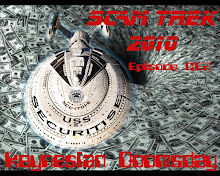



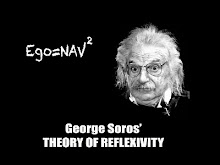

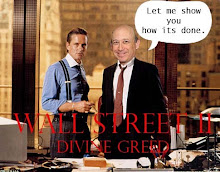




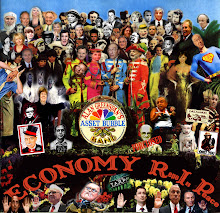



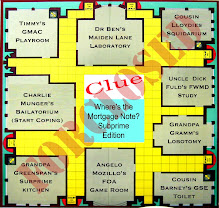





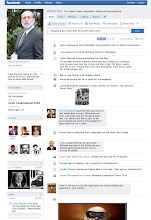
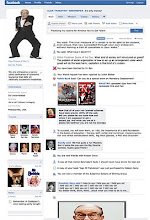
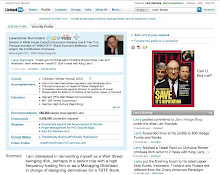




.jpg)



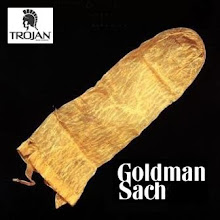



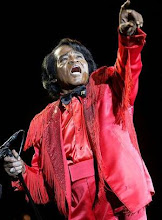




No comments:
Post a Comment